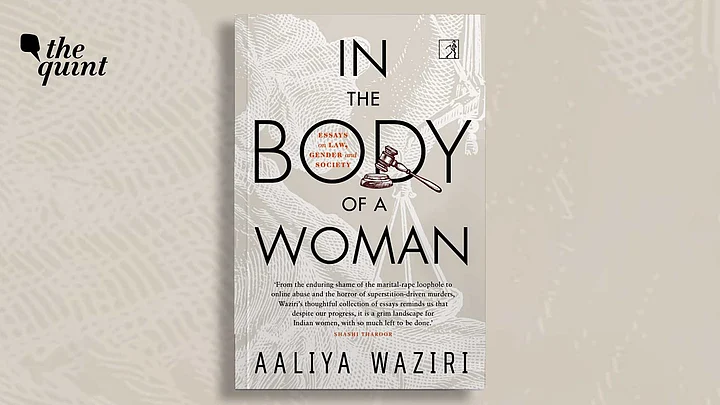"Talking about consent in criminal law is perhaps the most important conversation that we need to have," said Delhi High Court advocate Aaliya Waziri, in an interview with The Quint about her new book titled In the Body of a Woman: Essays on Law, Gender and Society.
Here are some of the highlights of the interview in which Waziri spoke about the consent issue, the changing landscape of violence against women online, and what drove her to write this book in the first place.
Q: What does your new book talk about? What are the larger issues that it explores?
A: I have tried to talk about the gender landscape, which is very wide and fluid because there are so many things that we don't look at through a gender angle but they fall within the ambit of what we call gender related issues or something that has a gender aspect to it and we overlook it.
For instance, I try to look at female labor force participation or witch hunting, which is not something that is covered very frequently in mainstream media.
Of course, I also look at more regular topics like marriage, or rape and the anti-rape laws and the changes that they have gone through over the years, post Nirbhaya or after the 1972 Mathura rape case.
And then I look at the need for anti-cyber harassment laws, and a lot to do with India's international obligations arising out of multilateral agreements and conventions that we are signatory too.
Q: What was the most challenging aspect of gender-related issues to write about in the book? And which, among all the issues that you have touched upon, do you think is the most important?
A: I think my answer to both your questions is the same. The topic that was the most challenging and which is the most important is the chapter on consent. I find that there is an area of offenses that falls within what we call a gray area, that is, offenses that are not penalized, that are not criminalized but they feel wrong because there is a problem of deciphering consent.
Consent in itself is so difficult to decipher. It muddies the waters. It makes things convoluted. So I think that talking about consent in criminal law is perhaps the most important conversation that we need to have, not just by virtue of this book, but in general. It is the Farooqi judgment, which is now the law of the land, which talks about how "a feeble no is a yes."
I can't stress over this enough and I can't stop fixating on how far we have strayed from our understanding of consent by assuming that "a feeble no is a yes." Not only was this the most difficult chapter to write, it is also the most pertinent one. It is the most important. I think everything boils down to this pivotal conversation we need to have because the statutes, our legislation, does not define consent in positive terms. It talks about what consent is not, instead of what consent is.
Q: As a lawyer, which aspect of Indian law with respect to gender-related issues, do you think needs the most rework?
A: I think we need to have a separate, targeted law, a specialised piece of legislation that talks about the changing landscape of violence against women online with the advent of technology. I have said this every single day, and written this in my essays or explained in my interviews.
What's happening is that we have two pieces of statutes that are dealing with online crimes and online harassment against women, which is the IPC (Indian penal code) and the IT Act.
Now, firstly, the IPC predates the advent of technology. Secondly, the IT Act was formulated to enhance e-commerce. It was not formulated keeping in mind the challenges that women nowadays are facing due to technology, due to social media. So what is happening is that both these statutes are inadequate to deal with the magnitude of problems that social media is bringing along with it.
They are inept. They are inadequate in terms of dealing with the the wide circumference of issues that social media and technology in general is posing for women.
Q: And finally, what drove you to write this book?
A: I never set out to write a book. I wrote about what came naturally to me during my limited time practicing as a lawyer before the courts in Delhi, and then during my two year stint with the United Nations, when I was working with UN Women. I didn't realise it then, but I was subconsciously writing to fill the gap that I thought had emerged where we should have had a literature that answers and critiques the loopholes within the law in India. So I think I was writing to find answers to the questions that I had, and this book is a product of that.
